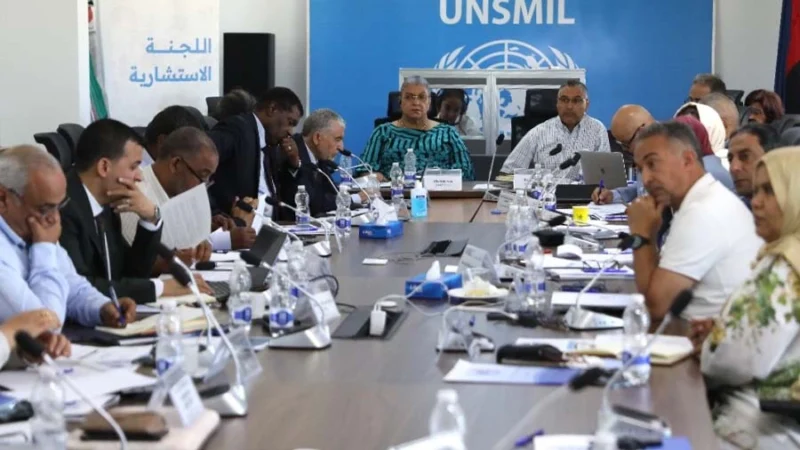
A new chapter in Libya’s political transition may be on the horizon as international and national actors intensify efforts to revive the Berlin process and enhance coordination.
Discussions are underway to lay the groundwork for a revised United Nations roadmap, expected to be unveiled in mid-August under the leadership of UN envoy Abdoulaye Bathily’s successor, Ghanaian diplomat Mohamed Ibn Chambas Tetteh.
In a recent meeting, Libya’s Presidential Council member Abdullah Al-Lafi held talks with the German Ambassador to Libya, Michael Ohnmacht, focusing on reigniting the Berlin process—a diplomatic initiative aimed at fostering a peaceful resolution to the Libyan crisis through international consensus and domestic engagement.
“The revival of the Berlin process is essential for maintaining momentum toward national elections and unifying institutions,” said Al-Lafi during the meeting.
The two officials reportedly discussed ways to promote inclusive dialogue and bolster cooperation between Libya’s various political factions and the international community.
Meanwhile, Libya’s internal affairs remain mired in institutional tensions.
Parliamentarians have accused the Tripoli-based government of obstructing their travel to Benghazi for a crucial budget session.
MP Al-Kahili stated, “Parliament members were prevented from traveling to Benghazi despite the presence of 50 MPs at the airport.”
Echoing this, spokesman Blihaq confirmed that attempts to convene the budget session were deliberately hindered.
“Dbeibah prevents MPs’ trip to Benghazi for the third time,” said MP Al-Soul.
Amidst this gridlock, Libya’s High National Elections Commission (HNEC) has held security consultations aimed at safeguarding upcoming municipal elections. According to the commission, these discussions are part of broader preparations to restore democratic legitimacy at the local level.
On the health front, measles outbreaks continue to pose a serious risk. Health official Shenishah reported that a southern vaccination campaign has reached 175,000 children, but several areas remain vulnerable.
With economic strains and institutional disputes compounding Libya’s fragile stability, the anticipated UN roadmap and a reinvigorated Berlin process offer a potential path forward. Whether these efforts will translate into tangible political progress remains to be seen.



